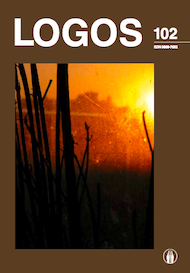Literatūros kūrinių adaptacijos: Franzo Kafkos kūrinių atvejai
Adaptations of Literary Works: Cases of Franz Kafka
Author(s): Miglė MunderzbakaitėSubject(s): Jewish studies, Media studies, Studies of Literature, Czech Literature
Published by: Visuomeninė organizacija »LOGOS«
Keywords: adaptation; narrative; Franz Kafka; intermediality; dialogism;
Summary/Abstract: The article analyzes the examples of adaptations of literary works in different media from the perspective of adaptation studies. The focus is placed on the transformation and interpretation of the narrative, characters, images, symbols, space, time of the adapted work in other media. The aim is to identify intertexts and to show the dialogism of the interpretations created by the directors in the general context of adaptation of the same literary work. Two works by the writer Franz Kafka were selected for analysis. The first one is a short story, Metamorphosis (1915). The adaptions are the play, Judgment: Metamorphosis (2012), by the Lithuanian director Paulius Ignatavičius and a film, Franz Kafka. Wonderful Life (1993), by the Scottish director Peter Capaldi. These directors adapt the novel in different ways. Ignatavičius combines it with other works by F. Kafka, and Capaldi looks back at the writer’s biography and the process of writing a short story. The second work by Kafka is the novel, The Castle (1924). Its first adaptation is as a contemporary opera by German independent opera company NOVOFLOT and director Sven Holm – The Castle (Das Schloss, 2013). Here the novel is combined with Franz Schubert’s music, The novel’s second adaption is a film by Austrian filmmaker Michael Haneke entitled The Castle (Das Schloß, 1997). It focuses on transposing all elements of the novel’s narrative into cinematic media.
Journal: LOGOS - A Journal of Religion, Philosophy, Comparative Cultural Studies and Art
- Issue Year: 2020
- Issue No: 102
- Page Range: 200-208
- Page Count: 9
- Language: Lithuanian

